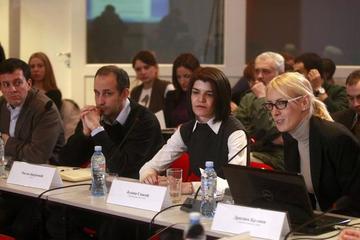
A serious number of killings of journalists committed on the territory of the former Yugoslavia remain unsolved. ""We must do everything to expose the killers of journalists", told Veran Matić, B92 director, in a seminar recently organised in Belgrade
The Association of Journalists in Serbia (UNS) promoted last week in Belgrade a panel discussion titled "Journalist Murders - 1991-2001 - War Crime or Professional Hazard".
A total of 37 journalists and people working in Serbian media were killed, abducted, went missing or died under suspicious circumstances over the discussed period. Fourteen Croatian and 17 Bosnian journalists were murdered during the 1990s wars.
Participants in the discussion pointed out that in most cases authorities had not launched any legal proceedings and those responsible for the crimes remain unknown to this day.
"We must do everything to expose the killers of journalists, we must constantly exert pressure for this to be solved, because if we don't, nobody will. That's our obligation, but it is also for the sake of basic justice," Veran Matić of B92 told participants, as quoted by the media's website.
Meanwhile, news outlets in Montenegro reported that the Prosecutor's Office in Podgorica has decided to resume investigations into the murder of opposition Dan daily publisher Duško Jovanović, who was shot down on the night of May 27th 2004 in front of the newspaper's office in Podgorica. The killers escaped in a vehicle. Both Dan and Jovanović's family said after the murder that the editor had received numerous death threats, and the newspaper's office was set on fire in April 2003.
Ten years after the incident there is no information yet about all the people who were in the car and their role in the plot. Only one person, Damir Mandić, has been sentenced to jail time as an accomplice, while the direct perpetrator remains unfound.
According to local media reports several people who worked on the case earlier have already been questioned as part of the resumed proceedings.
This publication has been produced with the assistance of the European Union. The contents of this publication are the sole responsibility of Osservatorio Balcani e Caucaso and its partners and can in no way be taken to reflect the views of the European Union. The project's page: Safety Net for European Journalists.A Transnational Support Network for Media Freedom in Italy and South-east Europe.

 Unresolved journalist murder cases continue to plague Balkans
Unresolved journalist murder cases continue to plague Balkans





 All the contents on the Osservatorio Balcani e Caucaso website are distributed with a
All the contents on the Osservatorio Balcani e Caucaso website are distributed with a 